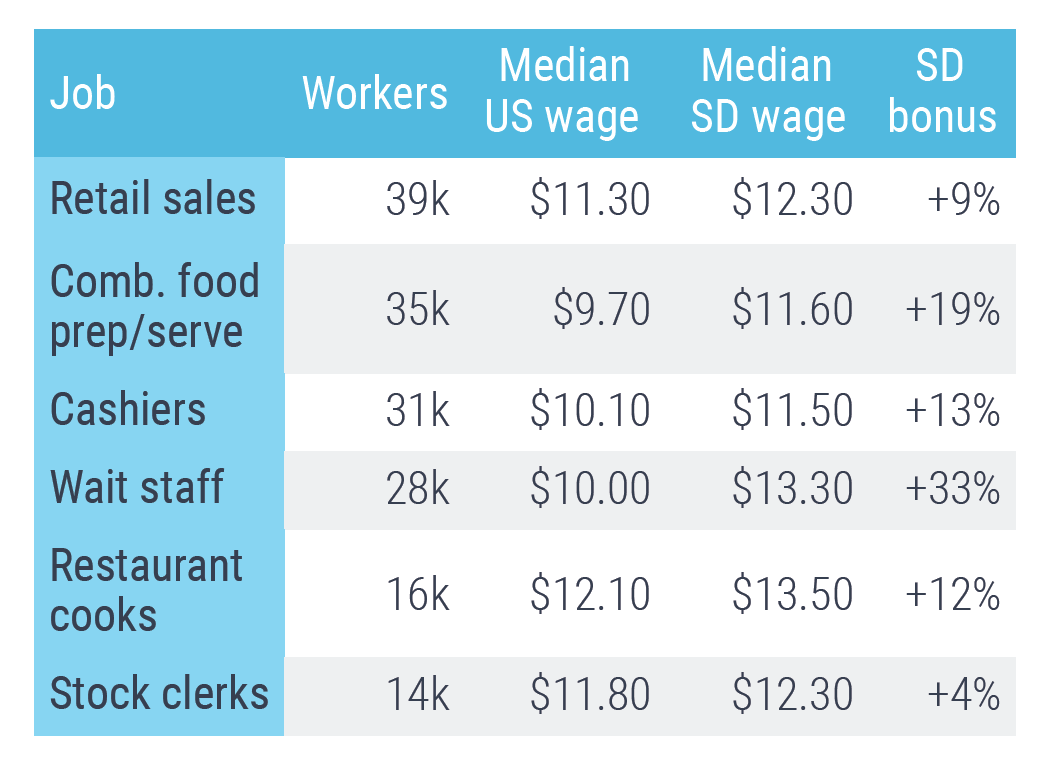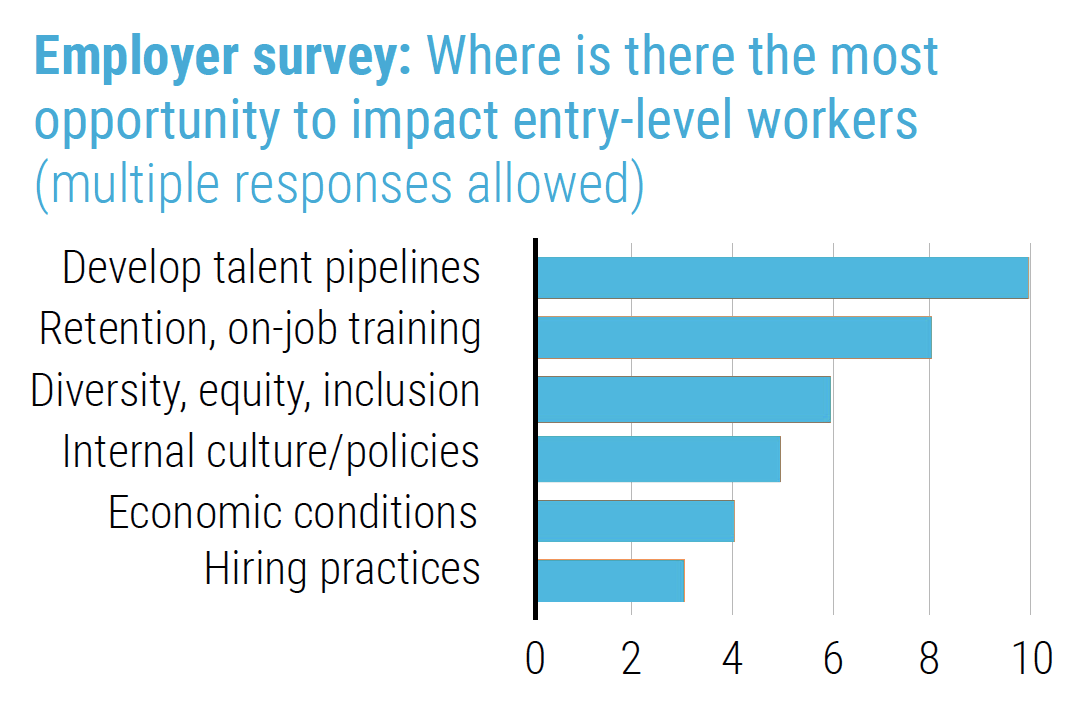 In May 2019, The James Irvine Foundation and the San Diego Workforce Partnership hosted a regional employer roundtable where retail and hospitality employers gathered to discuss challenges and opportunities for service-sector businesses and their workers, who comprise 20% of San Diego’s labor force.
In May 2019, The James Irvine Foundation and the San Diego Workforce Partnership hosted a regional employer roundtable where retail and hospitality employers gathered to discuss challenges and opportunities for service-sector businesses and their workers, who comprise 20% of San Diego’s labor force.
Employers addressed challenges such as the need for livable wages, reliable work schedules and meaningful opportunities for advancement, as well as the need to improve race and gender equity.
Wages
Service-sector wages are generally about 5–20% higher here than the U.S. average, but our cost of living is 44% higher than the U.S. average. California’s fast-approaching $15/hour minimum wage will help low-wage employees make ends meet, but it will also make it more difficult for businesses to turn a profit. Employers talked about how important cross-training, upskilling and worker retention would be in cultivating a more productive workforce.

Advancement
Employers recognized the importance of developing and communicating career pathways and bridges within their organization.
A representative from Ponce’s Mexican Restaurant described how they train food runners to become hosts, and then servers and bartenders, with similar career paths for “back of the house” workers. Click To Tweet
As a result, their workers stay an average of eight years in an industry with 75% annual turnover.
Schedules
Giving workers more stable schedules makes a critical difference—in employees’ personal lives and in employers’ ability to retain workers. A Gap executive shared that giving employees schedules three weeks in advance cut turnover roughly in half.
Hyatt Hotels, following the roundtable, decided to schedule farther in advance to help workers plan their weekends. Click To Tweet
Equity
In San Diego’s retail sector, workers of color are less likely to obtain high-paying jobs. In the hospitality sector, women are less likely to advance. More than half of the employers at the roundtable had initiatives geared for improving race and gender equity, but many struggled to make progress in this area. There was widespread interest in collaborating to develop new strategies for improving equity and diversity, including reaching out to organizations with ties to underrepresented communities for the purpose of recruiting employees and mentoring entry-level workers to cultivate a more diverse leadership team.

To learn more, check out this post by Amy Saxton, Vice President of Program Development of The James Irvine Foundation.
